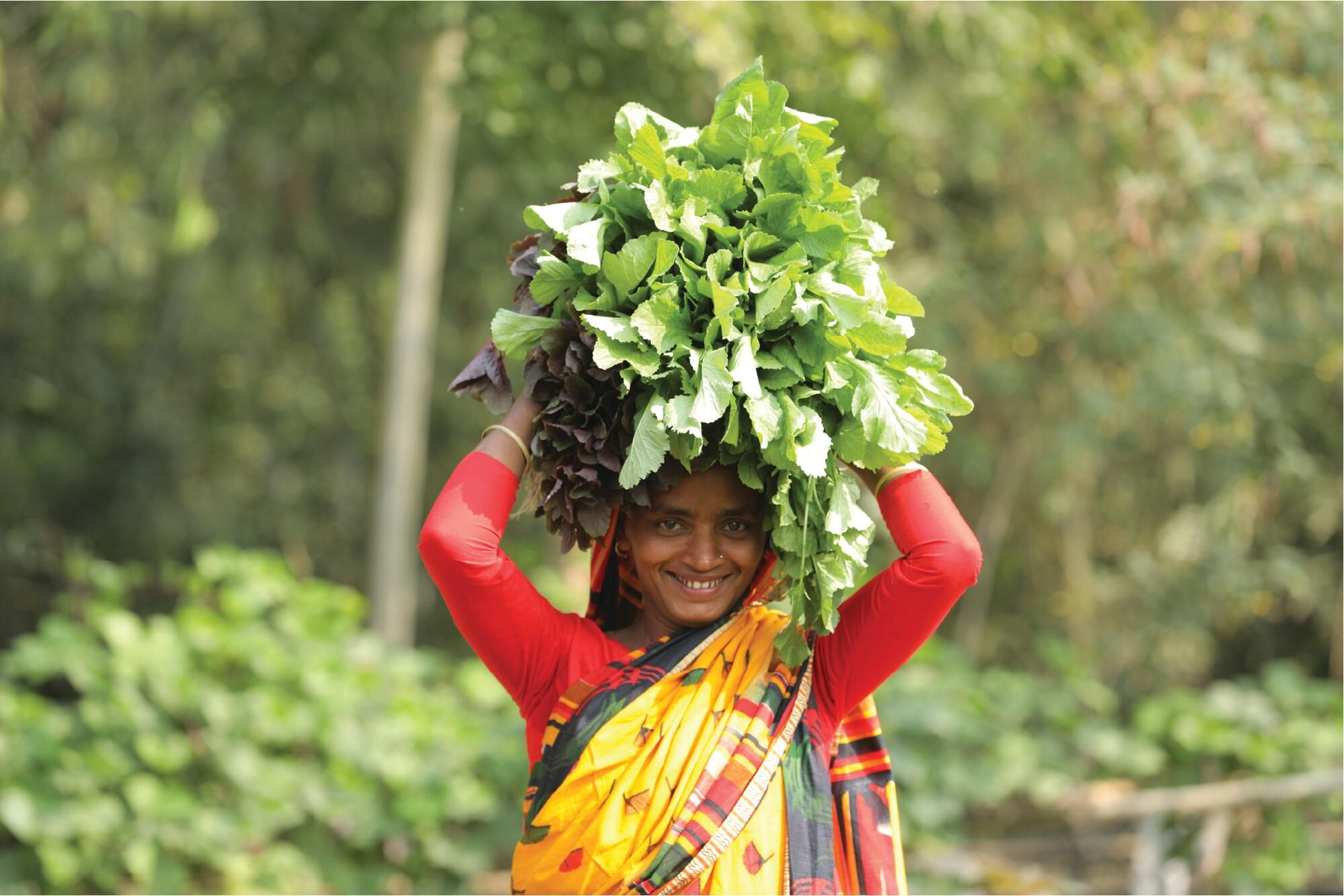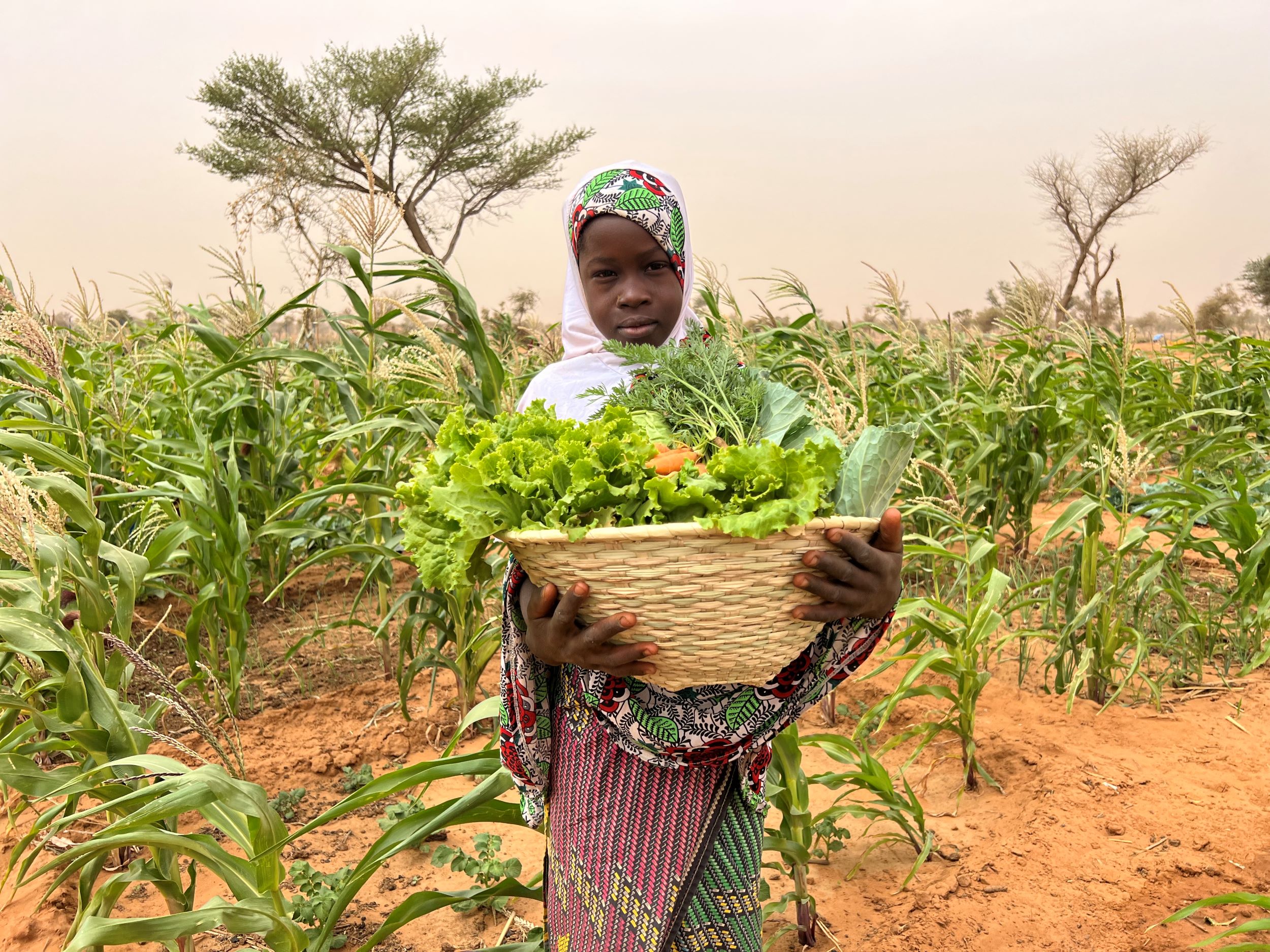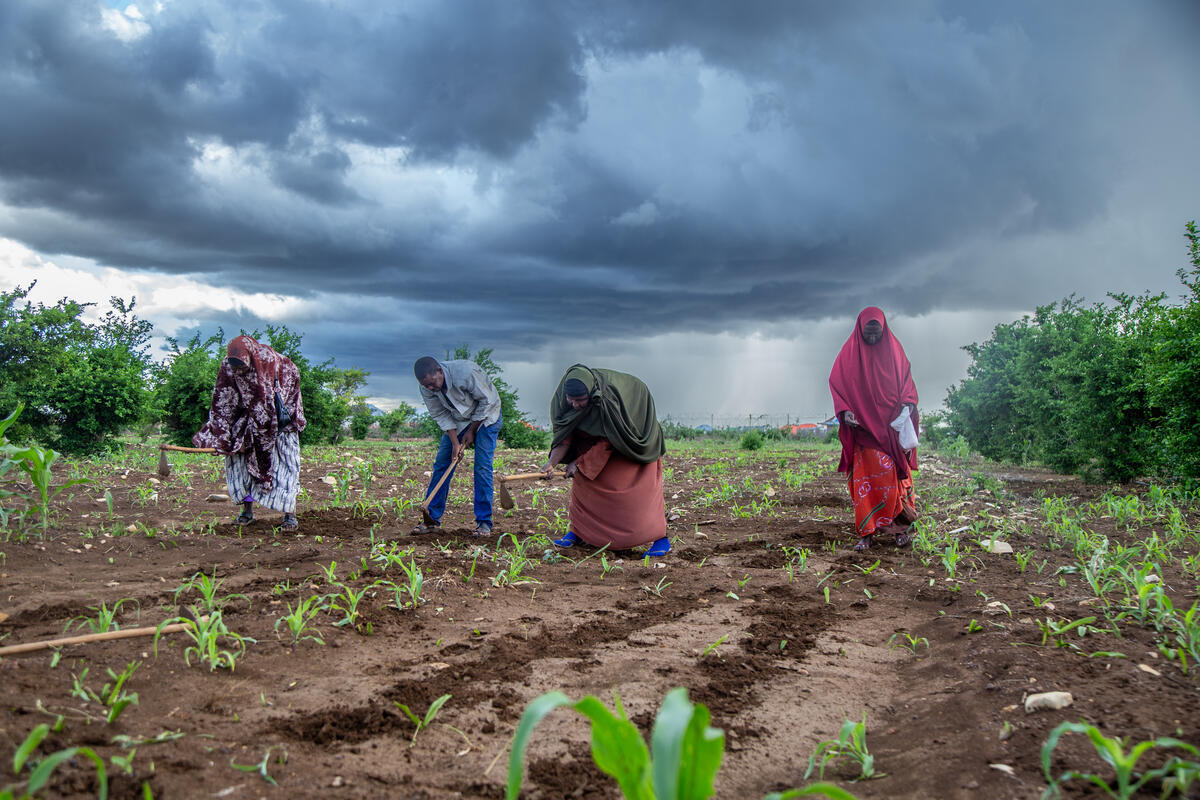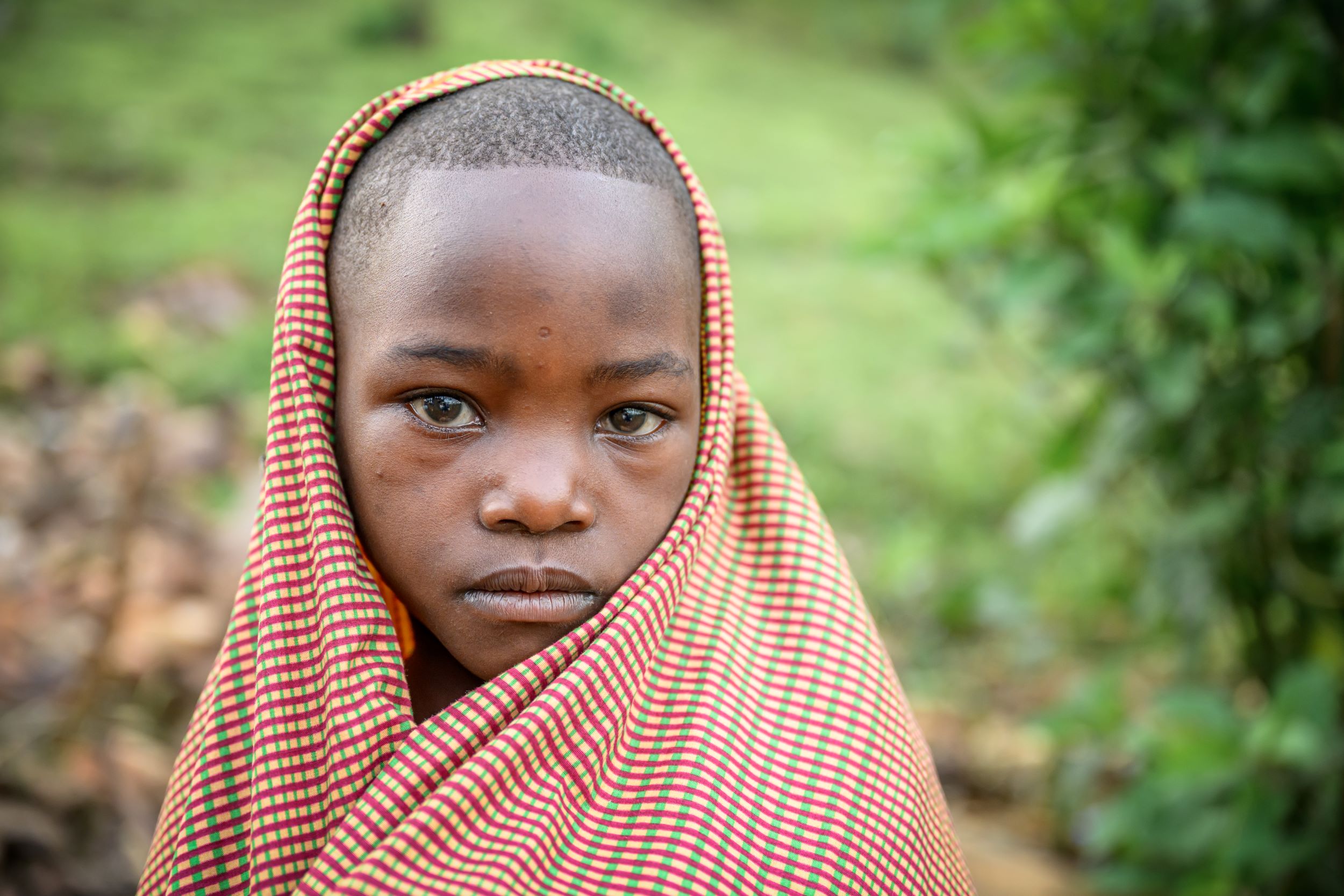
Effects of childhood malnutrition
Looking at the causes and effects of malnutrition in children.
Undernutrition is threatening the lives and wellbeing of millions of children in the countries where we work.
In this article, World Vision uncovers the effects of childhood malnutrition and shares how we're working to prevent the causes and long term consequences.
What is malnutrition?
The World Health Organization (WHO) defines malnutrition as a condition that occurs when a person's diet lacks the right balance of nutrients. This imbalance can manifest in two distinct categories:
- Undernutrition results when children don’t have enough food to eat or don’t eat the right kinds of foods, leading to wasting or stunting (more below).
- Overnutrition causes children to be high in weight for their age. This puts them at an increased risk of being overweight as adults.
Childhood malnutrition is particularly serious, since children need a balanced diet with vitamins and minerals to thrive.

Common effects of malnutrition
- Losing weight or finding it difficult to gain weight
- Not growing in height at the expected rate
- Having a reduced appetite, often resulting in feeling tired, weak and fatigued
- Difficulty recovering from illness or injury due to a weakened immune system
- Struggling with concentration and memory, which can impact their performance at school
It's important to recognise the signs and symptoms of malnutrition, and to prioritise a child’s diet during their early years, particularly age 0-5. Children’s bodies grow at a fast pace, so without the right nutrients to fuel this growth, their cognitive and physical development can be impaired.
Undernutrition can result in a child’s body failing to grow at the rate it should. This is called stunting and wasting. Stunting is when a child is short in height for their age and wasting is when a child has low weight for their height.
Why are children malnourished?
Nearly half of deaths among children under five are linked to undernutrition and the majority of these are in low or middle-income countries. This includes children living in conflict zones who are “more than twice as likely to be undernourished than those living in countries at peace”.
Malnutrition also happens in homes where there is little or no understanding of good nutrition or where there is inadequate access to healthcare, clean water, sanitation, hygiene, and/or social services.
To combat this global health concern, we work with families to provide the tools they need to prevent the causes of malnutrition, including access to good nutrition, particularly from the months before conception to a child’s second birthday.
Over the last 12 years, 9 out of 10 severely malnourished children that World Vision treated made a full recovery.
We're working with families to prevent malnutrition
World Vision is a leading international children’s charity, placing the wellbeing of children at the forefront of all that we do. We work alongside families and communities to provide essentials, such as food rations and cash vouchers, as well as training in climate-smart agricultural practices.
All of these – and more – reduce the health consequences of food insecurity, bringing an end to hunger and childhood malnutrition, giving children, like Nsrin, hope for today and tomorrow.
Spotting the signs of Nsrin’s condition
"Before the Mother Care Group’s visit, I had little hope,” says mother-of-four Rowda in Sudan. “My daughter's condition was getting worse, and our ability to provide for her was strained."
Rowda lives in East Darfur, Sudan, in a village that relies on traditional farming methods and lacks access to nutritious food. As is all too common in this part of the world, she and her husband have been struggling to keep their children well fed.
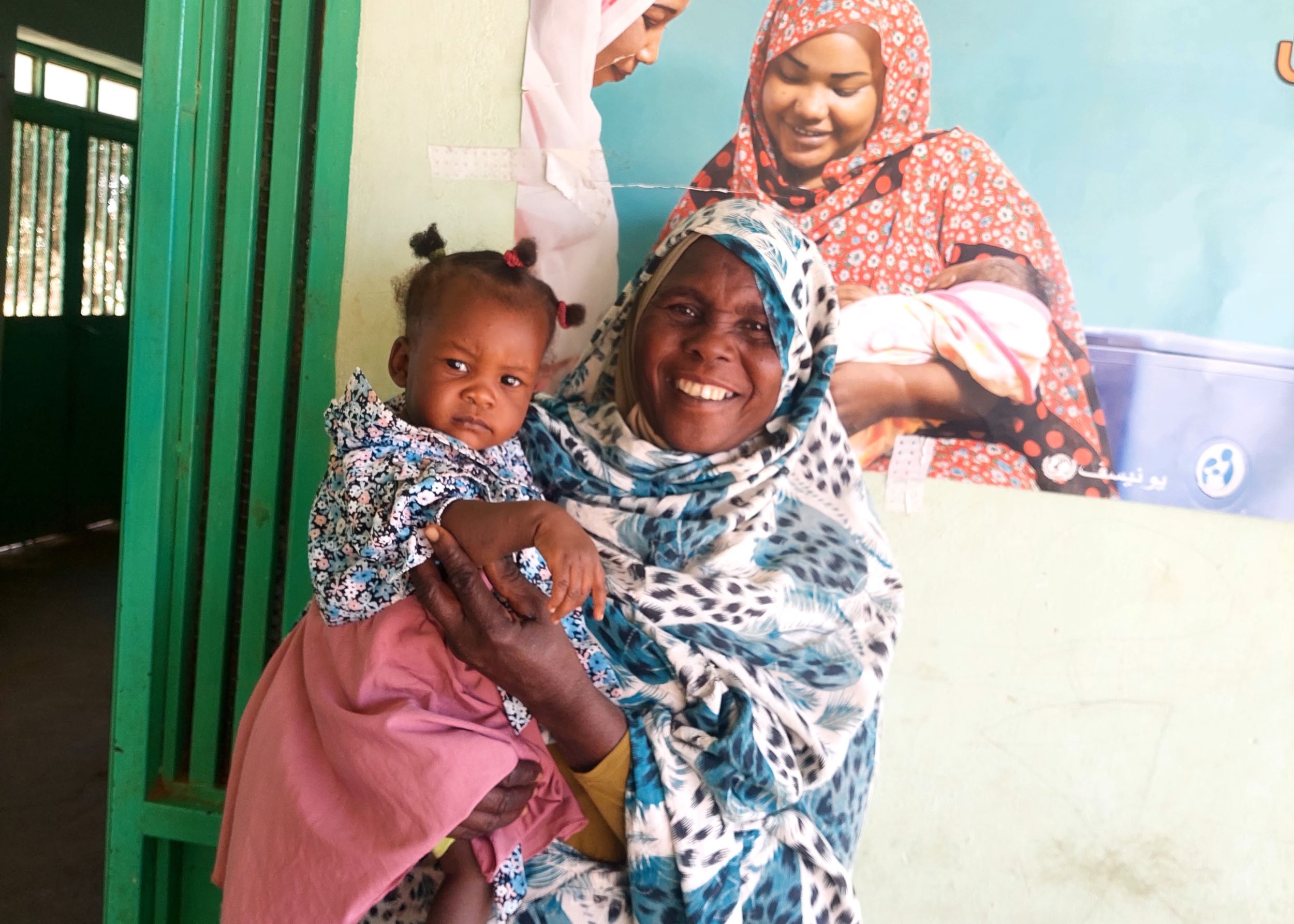
A timely visit
It was thanks to a visit from the Mother Care Group that Nsrin’s severe acute malnutrition was discovered and treated. Without this timely visit, 14-month-old Nsrin’s life would still be on the line.
Working alongside UNICEF, World Vision has been running a project that aims to provide vital health and nutrition services to Nsrin’s community. As part of this project, the Mother Care Group conducts household visits, which is how Nsrin’s condition was discovered.
Making good progress
Following Nsrin’s diagnosis of severe acute malnutrition, she received treatment as an outpatient, including essential nutrients and medication. With the addition of locally available nutritious foods to her diet, a month later Nsrin’s health significantly improved.
Now, thanks to World Vision donors who make our work in Sudan possible, Nsrin is no longer undernourished and can enjoy the childhood she’s supposed to have.
READ MORE: Mobile health clinics are helping displaced families in Sudan
How can I help protect children?
You can help protect children like Nsrin from childhood malnutrition by supporting World Vision’s work today. Your gift will support children living in some of the most challenging situations, ensuring they have enough food, clean water, sanitation, health and nutrition support and more.
As a World Vision supporter, you will be part of something bigger than you, creating greater change and making a long-lasting difference to children’s futures.

